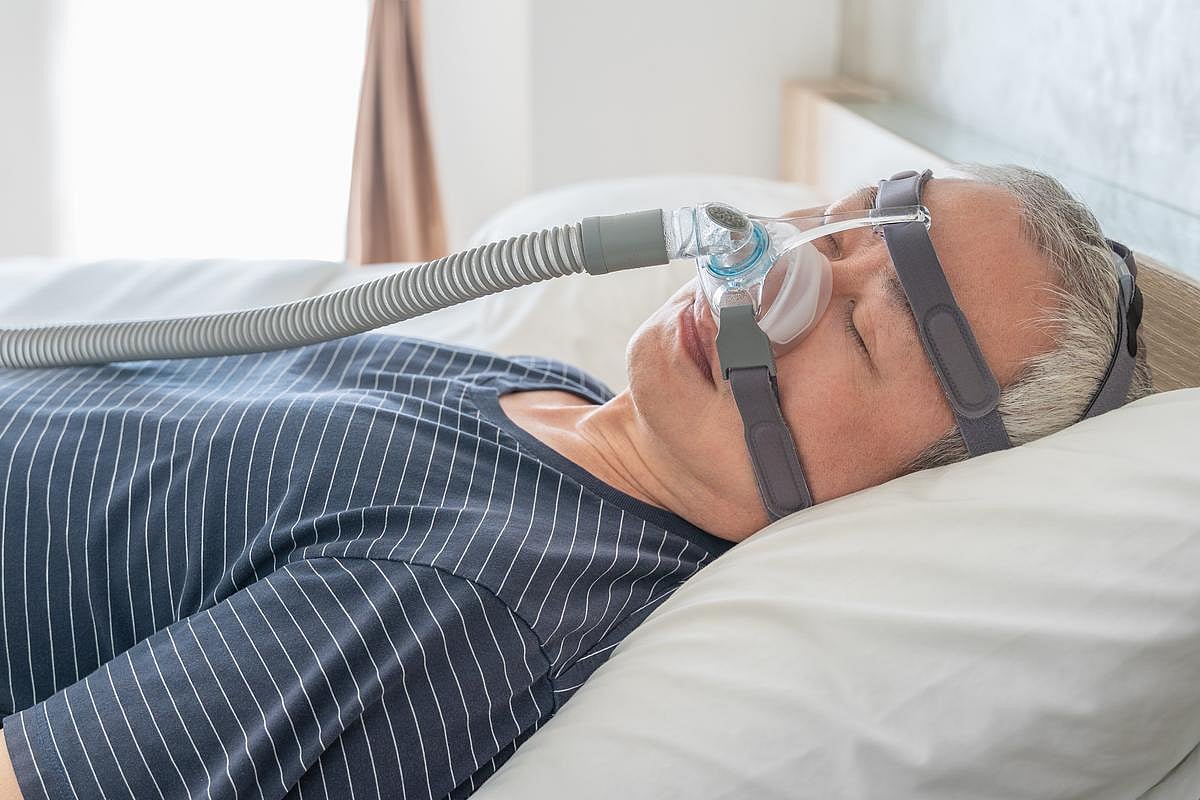Get Healthy!

- India Edwards
- Posted December 23, 2024
GLP-1 Zepbound Is Approved As First Drug For Sleep Apnea
The U.S. Food and Drug Administration (FDA) has approved the first prescription medication specifically for treating obstructive sleep apnea (OSA): the weight-loss drug Zepbound.
In a news release published Dec. 20, the FDA stated that Zepbound, part of the GLP-1 receptor agonist medicines that include Ozempic, was cleared to treat moderate to severe OSA in individuals with obesity.
According to drugmaker Eli Lilly, the treatment is intended for use alongside a reduced-calorie diet and increased physical activity.
“Today’s approval marks the first drug treatment option for certain patients with obstructive sleep apnea,” Dr. Sally Seymour, director of the Division of Pulmonology, Allergy, and Critical Care in the FDA’s Center for Drug Evaluation and Research, said in a news release. “This is a major step forward for patients with obstructive sleep apnea.”
OSA, a condition affecting as many as 30 million Americans, is characterized by breathing disruptions during sleep caused by blocked airflow.
Weight loss has long been recognized as an effective strategy to reduce OSA severity.
"Many cases of OSA go undiagnosed and untreated, leaving millions at risk for serious health consequences," Patrik Jonsson, president of Lilly Cardiometabolic Health, said in a news release from the company.
In clinical trials, he noted, nearly half of Zepbound users saw such significant improvements that their OSA symptoms resolved.
FDA approval for Zepbound in treating sleep apnea was based on two previous Eli Lilly-sponsored trials published in the New England Journal of Medicine involving nearly 470 participants, some of whom were using continuous positive airway pressure (CPAP) machines, a standard treatment for OSA.
The trials assessed participants using the apnea-hypopnea index (AHI), which measures the frequency of breathing interruptions during sleep.
In one trial where participants did not use CPAP, Zepbound reduced AHI events by an average of 25 per hour after one year, compared to a reduction of just five events in the placebo group.
In the trial involving CPAP users, Zepbound reduced events by 29 per hour on average, versus six in the placebo group.
Participants on Zepbound also experienced substantial weight loss -- averaging 18% to 20% of their body weight (approximately 45 to 50 pounds) over the course of a year -- compared to 1.6% to 2.3% for those on placebo.
Zepbound, which was first approved for weight management in November 2023, now offers new hope for those with obesity and obstructive sleep apnea, Eli Lilly reported.
The FDA approval is only for people with obesity, but it could help those with sleep apnea get Medicare coverage, which doesn’t cover drugs just for weight loss, according to a report.
The company has emphasized its commitment to accessibility, offering patient support programs, including a lower-cost vial option, to help ease financial barriers. However, without insurance, monthly costs can still exceed $1,000.
More information
The American Academy of Sleep Medicine has more on sleep apnea.
SOURCE: U.S. Food and Drug Administration, news release, Dec. 20; Eli Lilly, news release; New York Times





